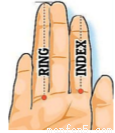题目内容
My family spent one summer vacation enjoying the beaches of beautiful Gulf Shores, Alabama. We bought a boat thinking this would make for a really _______ day at the beach for my two little girls.
I probably became too _______ with my younger daughter on the sand. When I looked up I became _______. The little boat with my older daughter in it had _______ far out from the shore. I called to her to come in _______ to shore and, although she seemed frightened, she was doing all she could to _______ just that. But there were no oars (桨) and her little _______ were too short to reach across the boat and into the _______.
Others on the beach seemed to be doing nothing to help except _______. I was standing as far out ________ the water as I could — ________ instructions to her, but with no ________. At last I thought to myself, “I know I’m a ________ swimmer but my daughter needs my help. I have no ________.” I jumped into the water.
At first my arms started moving very ________. I couldn’t believe I was doing this. I swam until I was breathless. I just kept hoping and ________ her. Finally, I reached the edge of the ________, grabbed the rope and began making my way back to shore. My child was crying so I tried ________ her, even though everything inside me was ________.
My life was forever changed by that ________. I learned if I believe in myself and dive right in I will have all the strength I need.
1.A. lucky B. fun C. moving D. peaceful
2.A. busy B. patient C. angry D. pleased
3.A. excited B. angry C. concerned D. amused
4.A. sunk B. stayed C. lost D. moved
5.A. closer B. faster C. earlier D. safer
6.A. avoid B. accomplish C. claim D. behave
7.A. legs B. fingers C. arms D. clothes
8.A. water B. shore C. board D. sand
9.A. applauding B. noticing C. swimming D. watching
10.A. off B. among C. in D. on
11.A. reading B. taking C. following D. shouting
12.A. hope B. reason C. end D. success
13.A. skillful B. poor C. brave D. new
14.A. choice B. way C. reason D. support
15.A. gently B. slowly C. confidently D. casually
16.A. keeping an eye on B. getting in touch with C. looking back at D. waving over to
17.A. strength B. oar C. boat D. beach
18.A. scolding B. calming C. praising D. helping
19.A. overjoyed B. changed C. missing D. trembling
20.A. point B. story C. experience D. scene
 中考解读考点精练系列答案
中考解读考点精练系列答案


 B.
B. 
 D.
D. 